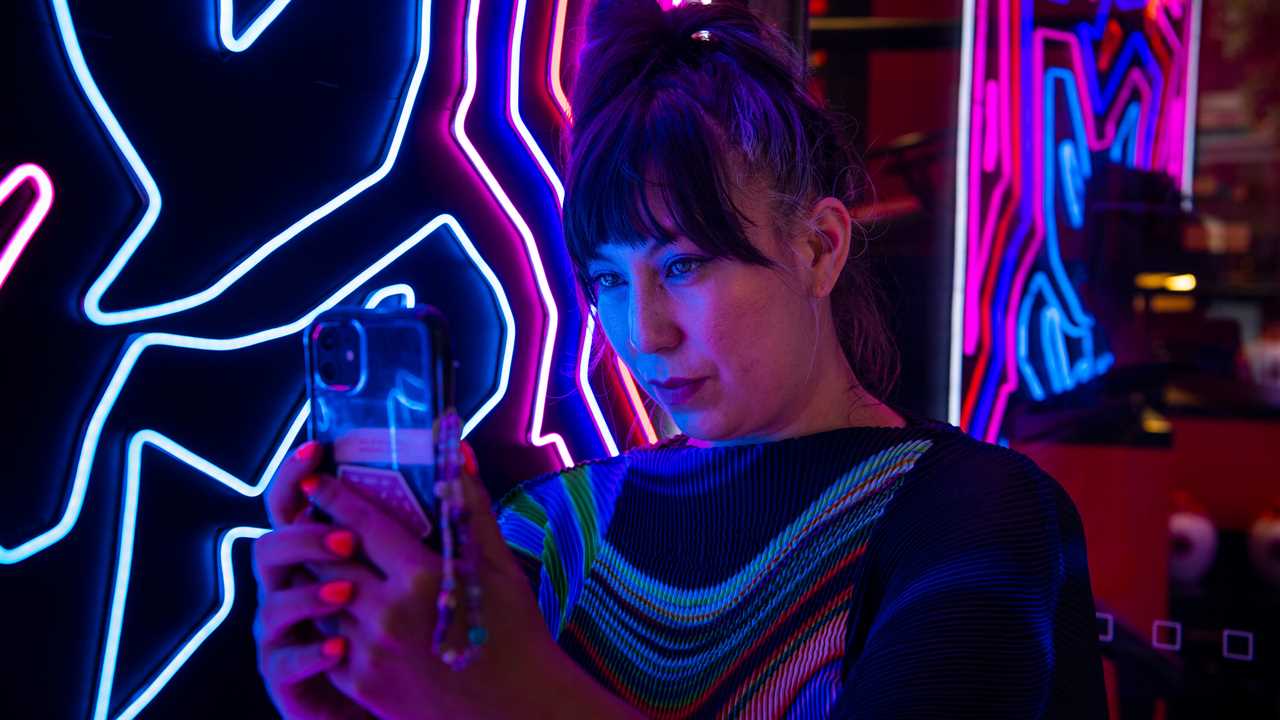
SYDNEY, Australia — In October, Thea-Mai Baumann, an Australian artist and technologist, found herself sitting on prime internet real estate.
In 2012, she had started an Instagram account with the handle @metaverse, a name she used in her creative work. On the account, she documented her life in Brisbane, where she studied fine art, and her travels to Shanghai, where she built an augmented reality company called Metaverse Makeovers.
She had fewer than 1,000 followers when Facebook, the parent company of Instagram, announced on Oct. 28 that it was changing its name. Henceforth, Facebook would be known as Meta, a reflection of its focus on the metaverse, a virtual world it sees as the future of the internet.
In the days before, as word leaked out, Ms. Baumann began receiving messages from strangers offering to buy her Instagram handle. “You are now a millionaire,” one person wrote on her account. Another warned: “fb isn’t gonna buy it, they’re gonna take it.”
On Nov. 2, exactly that happened.
Early that morning, when she tried to log in to Instagram, she found that the account had been disabled. A message on the screen read: “Your account has been blocked for pretending to be someone else.”
Whom, she wondered, was she now supposedly impersonating after nine years? She tried to verify her identity with Instagram, but weeks passed with no response, she said. She talked to an intellectual property lawyer but could afford only a review of Instagram’s terms of service.
“This account is a decade of my life and work. I didn’t want my contribution to the metaverse to be wiped from the internet,” she said. “That happens to women in tech, to women of color in tech, all the time,” added Ms. Baumann, who has Vietnamese heritage.
She started Metaverse Makeovers in 2012. When a phone running her app was held above one of the intricate real-world fingernail designs created by her team, the image on the screen would show holograms “popping” from the nails. This was before Pokémon Go, before Snapchat and Instagram filters became part of everyday life.
She saw the potential to scale the technology to clothing, accessories and beyond, but her investment money ran out in 2017, and she returned to the art world.
In the meantime, Mark Zuckerberg, Facebook’s chief executive, was investing heavily in his own futuristic vision of the metaverse — what he called “an embodied internet where you’re in the experience, not just looking at it.”
“The metaverse,” Mr. Zuckerberg said in announcing his company’s new name, “will not be created by one company.” Instead, he said, it will welcome a range of creators and developers making “interoperable” offerings.
Cory Doctorow, a tech blogger and activist, said this professed openness came with big caveats.
“He built Facebook by creating a platform where other businesses meet their customers,” Mr. Doctorow said, “but where Facebook structures the overall market, reserving to itself the right to destroy those businesses through carelessness, malice or incompetence.”
That vast power, governed by opaque policies and algorithms, extends to the company’s control over individual user accounts.
“Facebook has essentially unfettered discretion to appropriate people’s Instagram user names,” said Rebecca Giblin, director of the Intellectual Property Research Institute of Australia at the University of Melbourne. “There can be good reasons for that — for example, if they’re offensive or impersonating someone in a way that causes confusion.”
“But the @metaverse example highlights the breadth of this power,” she said, adding that under Facebook’s policies, users “essentially have no rights.”
On Dec. 2, a month after Ms. Baumann first appealed to Instagram to restore her account, The New York Times contacted Meta to ask why it had been shut down. An Instagram spokesman said that the account had been “incorrectly removed for impersonation” and would be restored. “We’re sorry this error occurred,” he wrote.
Two days later, the account was back online.
The spokesman did not explain why it had been flagged for impersonation, or who it might have been impersonating. The company did not respond to further questions about whether the blocking had been linked to Facebook’s rebranding.
Now that her account has been resurrected, Ms. Baumann plans to fold the saga into an art project she started last year, P∞st_Lyfe, which is about death in the metaverse. She’s also considering what she can do to help ensure that the metaverse becomes the inclusive place she said she had tried to help build.
“Because I have been working in the metaverse space for so long, 10 years, I just feel worried,” she said. She fears, she added, that its culture could be “corrupted by the kind of Silicon Valley tech bros who I feel lack vision and integrity.”
Did you miss our previous article...
https://trendinginthenews.com/tech-giants/at-amazon-site-tornado-collided-with-companys-peak-delivery-season






